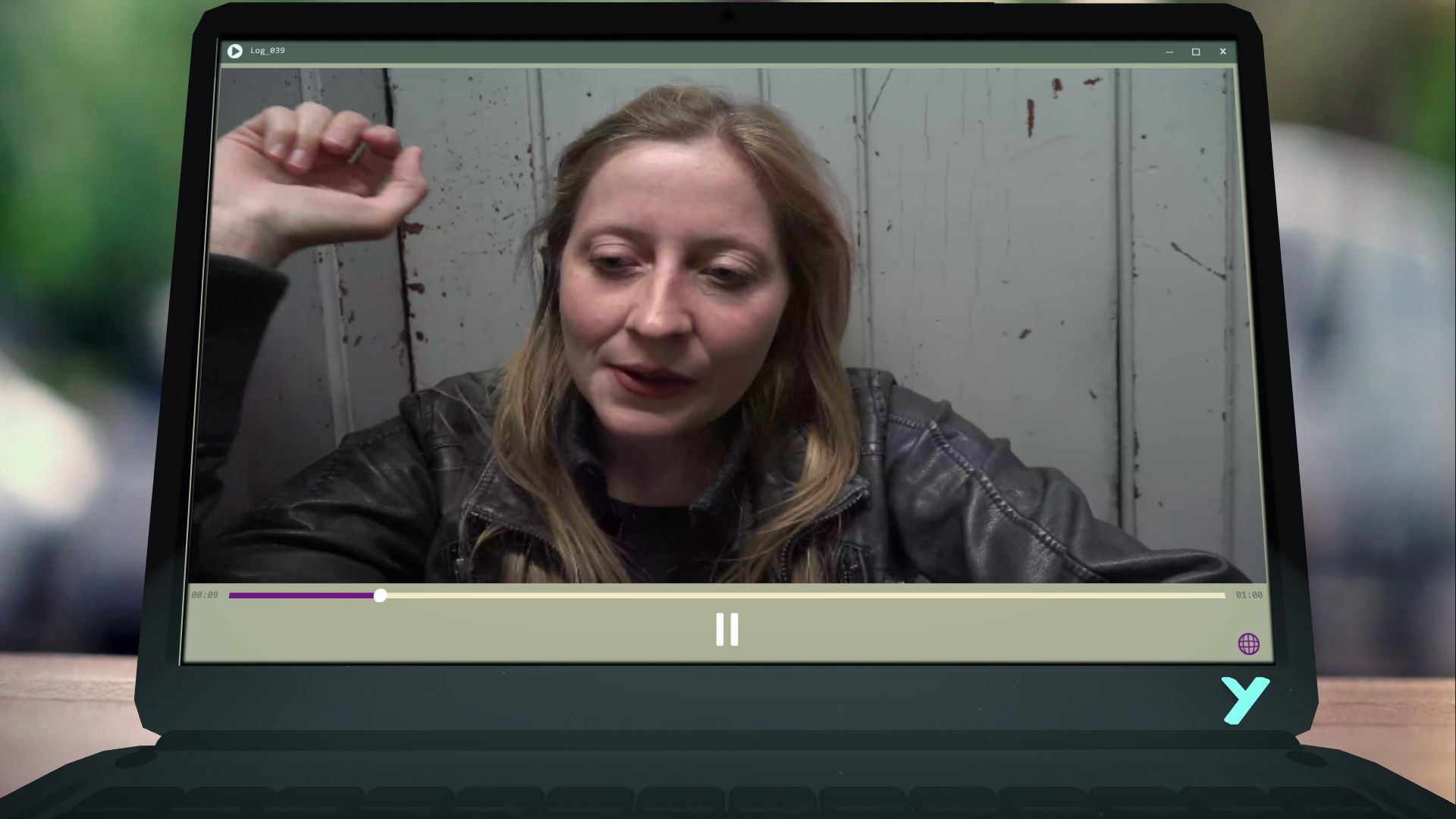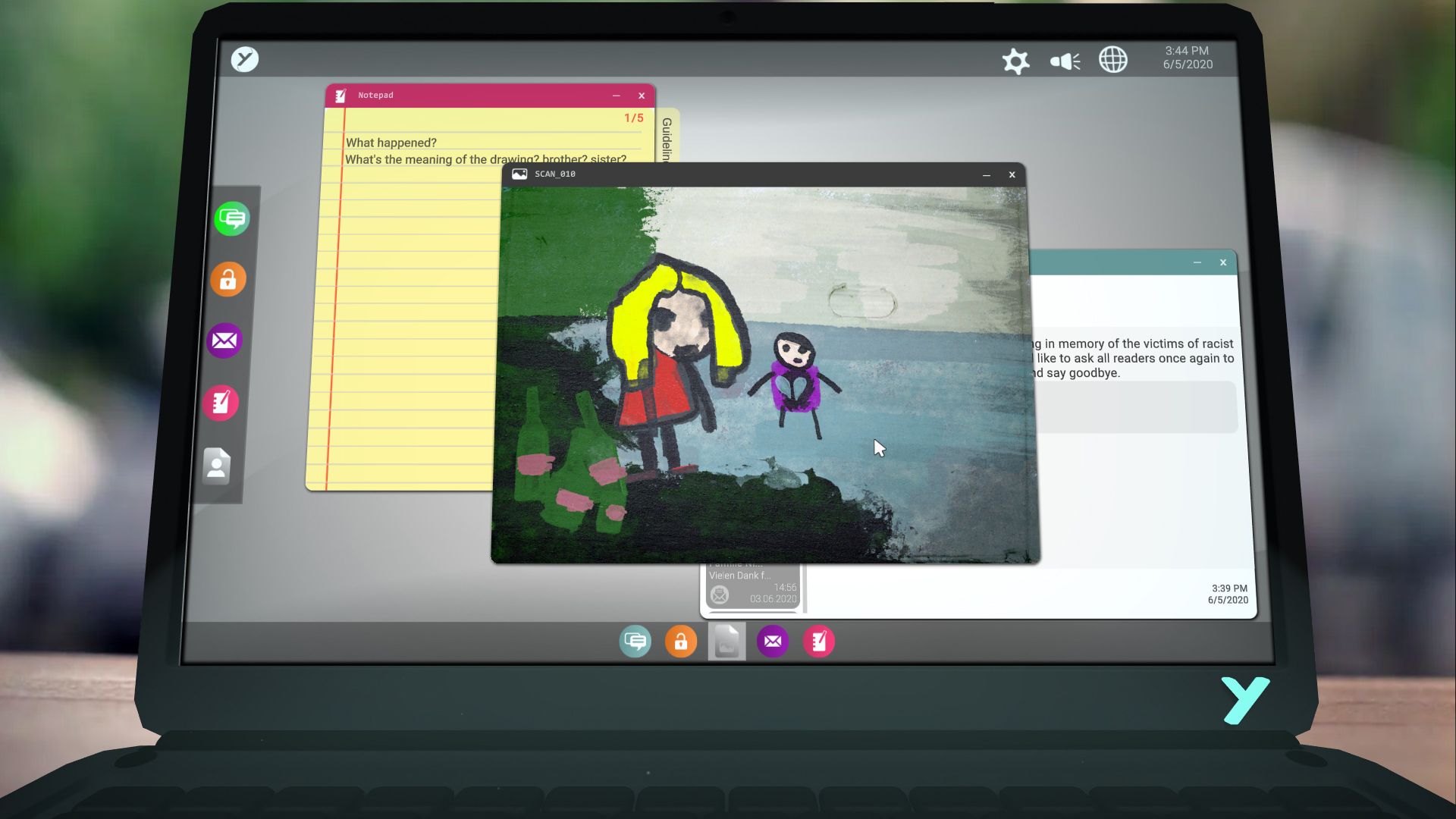
Full motion video was once seen as the future of video games, propelling the likes of The Seventh Guest to stardom. Before too long, however, FMV was more of a joke within the medium, permanently tied to failed consoles of the nineties and seemingly resigned to gaming history. Since then the indie scene has picked up FMV at times and used it in interesting ways, albeit with mixed results, and Jessika is the latest game to blend FMV into its larger design.
Developed by Tritrie Games, Jessika sees the player working for a company that digs through files on the computers of deceased people to find answers. The titular Jessika has reportedly died by suicide, and her father is trying to find out why it happened. Played entirely from a computer screen, Jessika is all about discovering the truth about what really happened.
This comes in the form of looking through her files – primarily vlogs from Jessika herself – and piecing it all together. The player can control a number of in-game apps including reading incoming emails, viewing files and videos, and chat boxes with other people working at the same company. It's all extremely basic in terms of input, with the player's control limited to typing in key words to search for new content and choosing from dialogue options in chat boxes.

This does lead to a sense of immersion in its own way, in part thanks to the reliance on a decryption tool that allows access to the various files that Jessika held. Rather than having to do a lot of the grunt work, it allows the player to feel like they are investigating through picking up key terms from the content they can access. With some files inaccessible until the correct search terms have been found, it leads to a solid nonlinear narrative in the long run.
There’s a real feeling of detective work here, with the decryption system giving the player a quick dive into the role akin to the sometimes unnatural intuition seen in LA Noire. At its best Jessika can feel uncomfortable and voyeuristic, as the player looks over old vlogs and entries. This is undermined by the game's reliance in the later periods on occasional glitches that act as jump scares, which always take the player out of the moment.
There are a few other bits and pieces that the player can do. Jessika includes a chat function where the player can speak to tech support and other colleagues at the company, as well as Jessika’s father who wants regular updates on what the player finds. Meanwhile the emails that come in generally fit thematically with the game, or otherwise mysteriously tie into the player's mission.

Altogether Jessika feels a lot like other games that take a similar approach with FMV, but isn't quite as broad or as successful. Developer Sam Barlow has used this setup very effectively with the acclaimed Her Story and Telling Lies, while horror game Simulacra did the same thing as Jessika with a mobile phone, and with more variation in gameplay. Jessika can’t really reach the level of impact of these previous games, in part because this kind of gameplay has lost its freshness.
Jessika could make up the ground to its peers through its subject matter, and the game does go into some very dark places. Although it starts with looking for questions surrounding Jessika's death, the game shifts to talk about fascism and far right groups in Germany. About halfway through the game players will realise that Jessika is tied into the actions of a far right extremist group, first hinted at by seeing copies of flyers for some music concerts for bands with dubious names and logos before delving further.
It’s a bold choice, with Jessika aiming to show how far right groups can be predatory and go after vulnerable people. According to the developers, the title was inspired by the real world case of Beate Zschäpe and the neo-Nazi terrorist group NSU, and it's here that Jessika is at its most poignant. The subject matter can be disturbing, particularly when the reality of Jessika's actions is revealed at the end of the game.

Unfortunately the way that this theme ties into the larger plot takes away from the impact of the overall work. Rather than a psychological view of a radicalised, dangerous person Jessika instead tries to pull off some twists, losing its power under some 'gotcha' moments. It still has some punch to it, but loses its impact in an attempt to make an already engaging plot more exciting
Even so, its tonal shift could still work very well, if not for an issue with pacing. Rather than a steady push that shows the radicalisation of Jessika piece by piece, instead there's a long time spent just watching the hateful rhetoric at its final, most vicious phase. There's a strange moment of frustrating character inaction, too, as there's little made of the realisation of her dangerous, extremist beliefs in terms of feeding this back to the player's colleagues via the chat function.
Overall the strong early positives for Jessika, particularly its first tonal bait-and-switch, are undone by its structural weakness towards the end. Coupled with minor issues like the odd translation issue in text, it's an interesting if sometimes inconsistent game. However, it's not afraid to go after difficult subject matter like far right extremism, and that's definitely to be commended.
Jessika is out now for PC. Screen Rant was provided with a PC download code for the purposes of this review.
from ScreenRant - Feed https://ift.tt/3bd8GNL


0 Comments